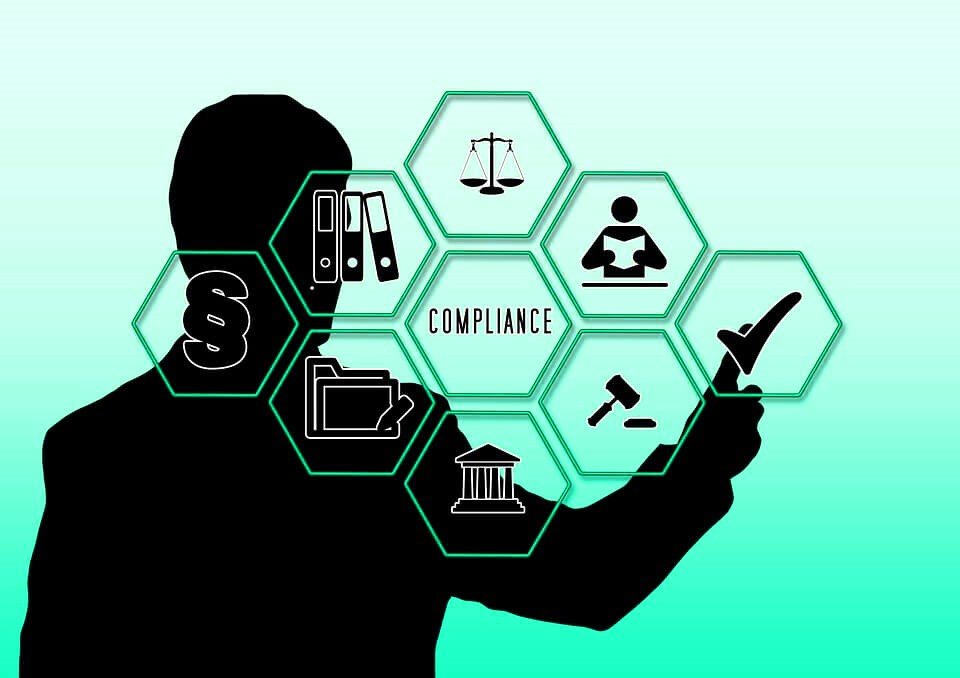Legal Considerations for Starting a Home-Based Business 2023


A home-based business can be a rewarding endeavor that provides freedom and the chance to work for yourself. To ensure adherence to pertinent rules and regulations, it is crucial to comprehend the legal aspects involved. We will discuss the important legal factors you should think about while beginning a home-based business in this article.
People can turn their passion into a source of income by starting a home-based business and taking advantage of the advantages of working from home. To safeguard your company’s interests and avoid potential legal problems, it is vital to understand how to navigate the legal system.
Structure and registration of businesses
One of the initial choices you must make when launching a home-based business is the best business structure. The most popular choices are corporation, partnership, limited liability company (LLC), and sole proprietorship. Each form has benefits and drawbacks, including as liability management and tax considerations. Determine the ideal structure for your company by speaking with an accountant or a legal expert. You’ll probably also need to register your company with the relevant government agencies.
Licenses and Permits
Your home-based business may require you to seek particular permits and licenses, depending on its nature. Other certificates or approvals could be necessary for some industries, including those that provide food services, daycare, or professional services. To find the permits and licenses required for your business, research the local, state, and federal laws. Failure to get the necessary permits may result in fines or legal issues.
Homeowner’s association and zoning restrictions
Reviewing the local zoning laws is essential before starting a home-based business. There are limitations to running a home-based business in some residential areas. Homeowner’s organizations could also have special requirements and rules for running a company out of your home. To prevent this, make sure your company abides by these rules.
Read More: Legal Considerations for Starting a Franchise Business 2023
Accounting and Taxes
For any business, especially home-based enterprises, proper tax planning, and accounting procedures are crucial. Learn about the tax duties specific to your industry and business structure. To ensure compliance with tax regulations, deductions, and reporting obligations, keep proper financial records and get advice from a tax specialist.
Protection of Intellectual Property
Inventions, designs, logos, and written works are all examples of original mental creations that fall under the category of intellectual property. It is crucial for home company owners to safeguard their intellectual property rights. To protect your distinctive goods, services, or brand identity, take into account trademarks, copyrights, or patents. You can better understand the measures required to protect your intellectual property by speaking with an intellectual property lawyer.
Agreements and Contracts
In defining commercial connections, safeguarding your interests, and averting misunderstandings or disagreements, contracts and agreements are essential tools. Make sure that any pertinent agreements—whether they pertain to a client contract, a supplier agreement, or a partnership—are in writing and expressly define the obligations of all parties. Consult a company lawyer to evaluate and create contracts that are tailored to your unique requirements.
Labor and Employment Laws
You must abide by employment and labor rules if you intend to engage staff for your home-based business. Learn the rules governing minimum wage, hours of labor, overtime, and benefits for employees. Additionally, be aware of what is necessary to keep harassment- and discrimination-free, safe working environment.
Insurance Protection
To safeguard your home-based business from potential dangers and liabilities, you must obtain adequate insurance coverage. Consider general liability insurance, professional liability insurance, property insurance, or product liability insurance depending on the nature of your firm. To determine the best insurance solutions for your unique business needs, speak with an insurance professional.
Read More: Smartphones Are Pedestrian Killers (2023)
Occupational Health and Safety Rules
For any organization, maintaining a secure and healthy working environment is essential. As a proprietor of a home-based business, you must adhere to the health and safety laws that are relevant to your sector. To reduce risks and safeguard yourself, any employees, or clients, identify potential hazards, put safety measures into place, and offer the necessary training.
Protection of data and privacy
Businesses handle sensitive information and personal data in the digital age. To preserve client information and uphold confidence, it is crucial to understand and abide by privacy and data protection rules. Create and implement appropriate data protection measures, including as privacy policies, secure storage, and data breach protocols.
Compliance with advertising and marketing
It is essential to abide by advertising and marketing regulations when promoting your home-based business. Make sure the promises you make in your advertising are true, truthful, and not deceptive. Be aware of any particular rules pertaining to telemarketing, online advertising, social media promotions, email marketing, and so forth.
laws protecting consumers
Laws aimed at protecting customers from unethical commercial practices. Recognize your duties and obligations with regard to returns, warranties, reasonable pricing, and consumer rights. For you to keep a good reputation and win your consumers’ trust, you must abide by these laws.
Resolution of Conflicts and Legal Support
It is advantageous to have a plan for resolution in the event of a disagreement or legal issue. To avoid drawn-out and expensive litigation, think about using alternative conflict resolution techniques like mediation or arbitration. Establish connections with legal experts who focus on small business law so that you can seek their help and counsel when needed.
Conclusion
Beginning a home-based business presents great potential, but it’s important to successfully handle the legal considerations. You can maintain compliance, safeguard your business interests, and reduce legal risks by comprehending the legal facets covered in this article. Keep in mind to speak with legal and accounting experts to get specialized guidance suited to your company’s needs.
In conclusion, it is important to carefully analyze the legal implications before launching a home-based business. You can position your company for success while reducing legal risks by comprehending and following the appropriate legal regulations. Always remember to consult a professional to ensure that your home-based business is operating in accordance with the relevant rules and regulations.
FAQs
Is it necessary for me to register my home business?
Yes, you should register your home-based business with the relevant government agencies in most circumstances to ensure legal compliance. Depending on where you live and the type of business you run, different registration procedures apply.
What licenses and permits are necessary for my home-based business?
Your location and the type of operations you do will determine the permits and licenses you require for your home-based business. To determine which permissions and licenses are required for your particular business, research the local, state, and federal laws.
How can I safeguard my intellectual property as a proprietor of a home business?
Consider using trademarks, copyrights, or patents to safeguard your intellectual property. Having a conversation with an intellectual property lawyer will assist you to comprehend what needs to be done to protect your distinctive goods, services, or brand name.
Are there any tax advantages for firms run from home?
Certain tax deductions, such as those for business-related or home office expenses, may be available to entrepreneurs operating from their homes. To comprehend the tax advantages and obligations unique to your business structure and industry, speak with a tax professional.
Which types of insurance do I require for my home-based business?
Depending on the nature of your operations and the potential hazards involved, you may require different levels of insurance protection for your home-based business. Take product liability insurance, general liability insurance, professional liability insurance, or property insurance. The best coverage for your company can be determined by consulting an insurance expert.










2 Comments